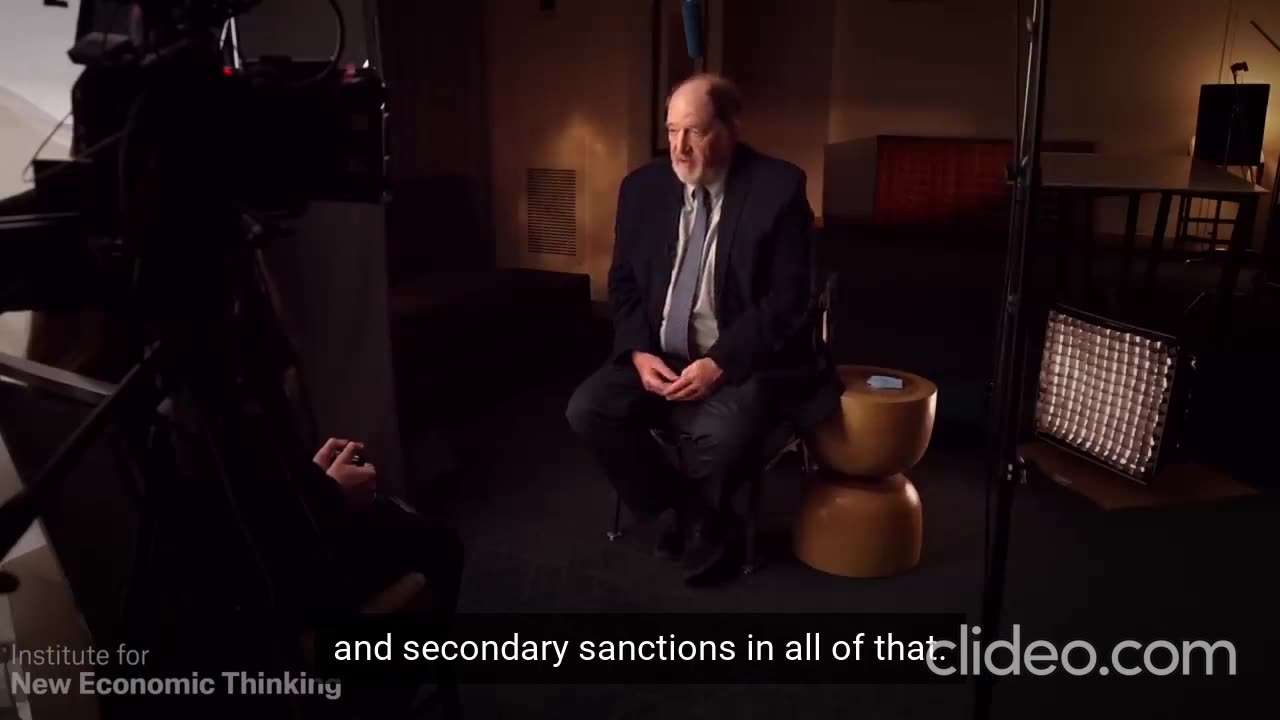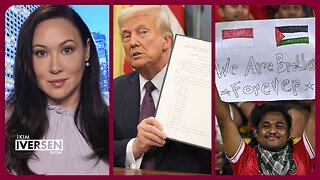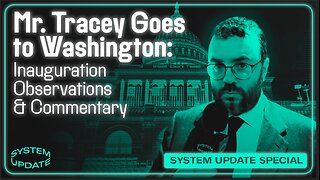Premium Only Content

James Galbraith challenges common perceptions about western sanctions and their impact on Russia
Sanctions: To Russia with Love
James Galbraith challenges common perceptions about western sanctions and their impact on Russia, revealing unexpected outcomes for its economy and development.
Contrary to the goals of defunding the war and degrading Russia's military capacity, sanctions have led to economic adjustments that have fostered Russia's independent development. Galbraith points out that despite initial disruptions, Russia adapted by focusing on domestic production and diversifying its economic partnerships. This analysis provides a nuanced view of economic sanctions' real-world impacts, suggesting that their effectiveness and consequences are more complex than commonly understood.
This is hands-down the best explanation I've heard on why sanctions on Russia backfired, and why they were never going to succeed in the first place.
By economist James K. Galbraith, professor at the University of Texas at Austin.
Best quote of his explanation: "This is a situation in which the sanctions were imposed by one important sector of the world economy which then cut itself off from resources that it needs - and that's particularly true of Western Europe - in return for cutting Russia off from various things that Russia doesn't really need."
Second best quote: "If you go back to the period before the introduction of the sanctions [...] the Russian economy was very heavily colonized by Western firms. That was true in automobiles, it was true in aircrafts, it was true in everything from fast food restaurants to big box stores. Western firms were present all throughout the Russian economy. A great many of them [...] either chose to exit Russia or were pressured to exit Russia after early 2022. So on what terms did they leave? Well, they were required, if they were leaving permanently, to sell their capital equipment, their factories and so forth, to let's say a Russian business which would get a loan from Russian banks or maybe have other sources of financing, at a very favorable price for the Russians. So effectively a lot of capital wealth, which was partly owned by the West, has been transferred to Russian ownership. And you now have an economy which is moving forward and has the advantage compared to Europe of relatively low resource costs because Russia is a great producer of resources, oil and gas and fertilizer and food stuff and so forth. And so while the Europeans are paying maybe twice in Germany what they were paying for energy, the Russians are not, they're paying perhaps less than they were paying before the war. So again I characterize the effect of the sanctions, in fact as being in certain respects a gift to the Russian economy. And this is, I think, quite different from what the authors of the sanctions expected. [...] And the essence of the situation is this would not have happened without the sanctions. You could have had the war, and it would have gone pretty much as it has gone. But the Russian government in 2022 was in no position to force the exit of Western firms. It didn't want to, wouldn't have done that. It was in no position to force its oligarchs to choose between Russia and the West. It didn't wish to do that. These choices were imposed by the West, and the results were actually, in many respects, favorable to the long-term independent development of the Russian Federation's economy."
-
 5:45
5:45
Tactical Advisor
1 day agoWoox New Lever Action | Shot Show 2025
6.81K1 -
 16:25
16:25
Clownfish TV
10 hours agoDEI is Deader Than Disco! Hollywood Most Affected?!
5.54K3 -
 1:04:23
1:04:23
CarlCrusher
12 hours agoThe TRUTH about Roswell and the UFO Crash Recovery Material
4.46K -
 59:40
59:40
Trumpet Daily
19 hours ago $3.67 earnedAmerica’s Royal Family - Trumpet Daily | Jan. 21, 2025
8.13K12 -
 1:03:14
1:03:14
Bek Lover Podcast
12 hours agoInteresting Times with Bek Lover Podcast
11.7K2 -
 3:10:10
3:10:10
Price of Reason
14 hours agoTrump is BACK in Action! Elon Musk's Inauguration Gesture Draws MSM Fire! Disney Prepares For LOSSES
34.1K4 -
 2:08:22
2:08:22
Kim Iversen
13 hours agoIs This Even Legal? Trump’s Push to End Birthright Citizenship and The Insane Plan to Move Palestinians to Indonesia
133K283 -
 1:27:06
1:27:06
Glenn Greenwald
13 hours agoMr. Tracey Goes To Washington: Inauguration Observations, Interviews & Commentary | SYSTEM UPDATE #393
165K59 -
 52:01
52:01
Tucker Carlson
17 hours agoNew York Mayor Eric Adams Sounds a Lot Like a Trump Voter
238K224 -
 2:47:25
2:47:25
Right Side Broadcasting Network
16 hours agoLIVE REPLAY: President Donald J. Trump Holds First Press Briefing Since Inauguration - 1/21/25
258K214